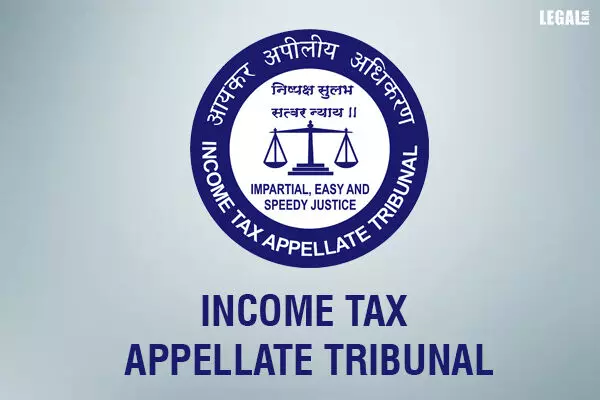- Home
- News
- Articles+
- Aerospace
- AI
- Agriculture
- Alternate Dispute Resolution
- Arbitration & Mediation
- Banking and Finance
- Bankruptcy
- Book Review
- Bribery & Corruption
- Commercial Litigation
- Competition Law
- Conference Reports
- Consumer Products
- Contract
- Corporate Governance
- Corporate Law
- Covid-19
- Cryptocurrency
- Cybersecurity
- Data Protection
- Defence
- Digital Economy
- E-commerce
- Employment Law
- Energy and Natural Resources
- Entertainment and Sports Law
- Environmental Law
- ESG
- FDI
- Food and Beverage
- Gaming
- Health Care
- IBC Diaries
- In Focus
- Inclusion & Diversity
- Insurance Law
- Intellectual Property
- International Law
- IP & Tech Era
- Know the Law
- Labour Laws
- Law & Policy and Regulation
- Litigation
- Litigation Funding
- Manufacturing
- Mergers & Acquisitions
- NFTs
- Privacy
- Private Equity
- Project Finance
- Real Estate
- Risk and Compliance
- Student Corner
- Take On Board
- Tax
- Technology Media and Telecom
- Tributes
- Viewpoint
- Zoom In
- Law Firms
- In-House
- Rankings
- E-Magazine
- Legal Era TV
- Events
- News
- Articles
- Aerospace
- AI
- Agriculture
- Alternate Dispute Resolution
- Arbitration & Mediation
- Banking and Finance
- Bankruptcy
- Book Review
- Bribery & Corruption
- Commercial Litigation
- Competition Law
- Conference Reports
- Consumer Products
- Contract
- Corporate Governance
- Corporate Law
- Covid-19
- Cryptocurrency
- Cybersecurity
- Data Protection
- Defence
- Digital Economy
- E-commerce
- Employment Law
- Energy and Natural Resources
- Entertainment and Sports Law
- Environmental Law
- ESG
- FDI
- Food and Beverage
- Gaming
- Health Care
- IBC Diaries
- In Focus
- Inclusion & Diversity
- Insurance Law
- Intellectual Property
- International Law
- IP & Tech Era
- Know the Law
- Labour Laws
- Law & Policy and Regulation
- Litigation
- Litigation Funding
- Manufacturing
- Mergers & Acquisitions
- NFTs
- Privacy
- Private Equity
- Project Finance
- Real Estate
- Risk and Compliance
- Student Corner
- Take On Board
- Tax
- Technology Media and Telecom
- Tributes
- Viewpoint
- Zoom In
- Law Firms
- In-House
- Rankings
- E-Magazine
- Legal Era TV
- Events
ITAT: Remuneration Paid to Consultant Doctors is Professional Fees, Not Salary

ITAT: Remuneration Paid to Consultant Doctors is Professional Fees, Not Salary
In a recent ruling, the Panaji bench of the Income Tax Appellate Tribunal (ITAT) has held that remuneration paid to consultant doctors should be classified as professional fees, not salary.
Victor Hospital and Medical Services Limited, a private limited company based in Goa, underwent a survey. The Assessing Officer (AO) found that the company had engaged several doctors as full-time consultants and paid them professional fees. The AO examined the employment contracts of each doctor and concluded that the provisions of Section 192B of the Income Tax Act applied. The AO issued an order under Section 201(1)/201(1A) of the Income Tax Act, holding the company in default. However, the Commissioner of Income Tax (Appeals) [CIT(A)] took a different stance, arguing that the remuneration paid to consultant doctors should be considered professional fees, not salary.
The two-member bench of R.S. Syal (Vice President) and S.S. Viswanethra Ravi (Judicial) cited the case of The Commissioner of Income Tax (Tds) v. Grant Medical Foundation (Ruby Hall Clinic) [LQ/Bom HC/2015/238], in which the Bombay High Court had ruled that the mere fact that a doctor attended a particular hospital for a specified period or a required number of hours did not preclude them from visiting other hospitals or attending to patients elsewhere. This suggests that the Bombay High Court did not find an employer-employee relationship to exist between the assessee and consultant doctors working at the hospital.
The Bench also mentioned the case of Pr. Commissioner of Income-Tax v. National Health & Education Society [LQ/BomHC/2019/475], in which the Bombay High Court observed that the absence of benefits such as leave encashment, gratuity, provident fund, and superannuation benefits for doctors indicates that the doctor-hospital relationship is not that of an employer-employee.
In conclusion, the Bench found that the AO failed to establish an employer-employee relationship between the assessee and the consultant doctors in this case.
The Tribunal upheld the CIT(A)’s order and dismissed the revenue’s appeal.


